UN chief blasts India on human rights record
India has a responsibility to protect and promote the rights of members of minority communities, says Antonio Guterres
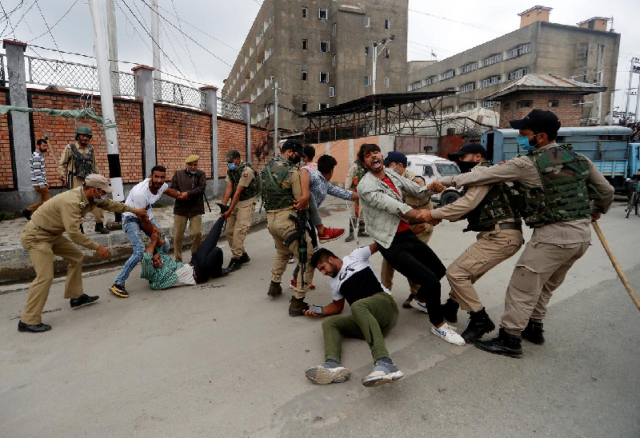
UN chief Antonio Guterres chided India during a visit on Wednesday over its human rights record, which critics say has regressed under Hindu nationalist Prime Minister Narendra Modi.
Since Modi came to power in 2014 in the Hindu-majority nation of 1.4 billion, campaigners say persecution and hate speech have accelerated against religious minorities, especially for 200-million-strong Muslim minority.
This is particularly the case in Indian Illegally Occupied Jammu and Kashmir (IIOJK) since the Modi government in 2019 imposed direct rule on the restive Muslim-majority region where it has half a million troops stationed, activists say.
Pressure has also grown towards government critics and journalists, particularly women reporters -- some have suffered relentless campaigns of online abuse including death and rape threats.
Also read: India stops Pulitzer-winning Kashmiri journalist from travelling to New York
"As an elected member of the Human Rights Council, India has a responsibility to shape global human rights, and to protect and promote the rights of all individuals, including members of minority communities," Guterres said in a speech in Mumbai.
Though he praised India's achievements 75 years after leaving British rule, Guterres also pointedly said that the understanding that "diversity is a richness... is not a guarantee".
"It must be nurtured, strengthened and renewed everyday," he said.
Citing independence hero Mahatma Gandhi and India's first prime minister Jawaharlal Nehru – both of whom have become hate figures for some in Modi's Bharatiya Janata Party – Guterres said their values need to be guarded by "condemning hate speech unequivocally".
India must do this "by protecting the rights and freedoms of journalists, human rights activists, students and academics. And by ensuring the continued independence of India's judiciary", he said.
Also read: Hindu activists, academics condemn BJP's blasphemous remarks
"India's voice on the global stage can only gain in authority and credibility from a strong commitment to inclusivity and respect for human rights at home," he said, adding that "much more needs to be done to advance gender equality and women's rights".
"I urge Indians to be vigilant and to increase your investments in inclusive, pluralistic, diverse communities and societies," Guterres said.
In February UN rights experts called for an end to "misogynistic and sectarian" online attacks against one particular Muslim woman journalist who was a fierce critic of Modi.
Media rights group Reporters Without Borders (RSF) places India at a lowly 142 in its World Press Freedom Index, saying that under the premier, "pressure has increased on the media to toe the Hindu nationalist government's line".
Climate goals
On climate change, Guterres echoed New Delhi's assertion that advanced economies must take the lead in cutting carbon emissions and provide money to poorer countries like India to develop renewable energies.
But the UN chief also said nations like India need to "take an extra step to close the mitigation gap", referring to efforts to reduce or prevent the emission of greenhouse gases.
While setting ambitious goals for renewable energy, coal still makes up 70 per cent of India's energy needs.
India and China weakened the final summit declaration at last year's COP26, insisting that language was changed from "phase out" coal to "phase down".
Guterres also said that as home to one-sixth of humanity India can "make or break" the Sustainable Development Goals and the 2030 Agenda for Sustainable Development.
Some of the most fundamentals of these have "gone into reverse" due to the Covid-19 pandemic and the cost of living crisis "accelerated by the war in Ukraine", he said.

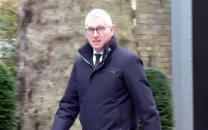


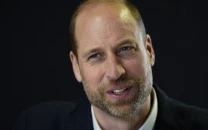
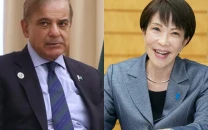
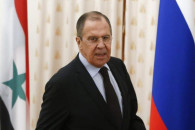











COMMENTS
Comments are moderated and generally will be posted if they are on-topic and not abusive.
For more information, please see our Comments FAQ